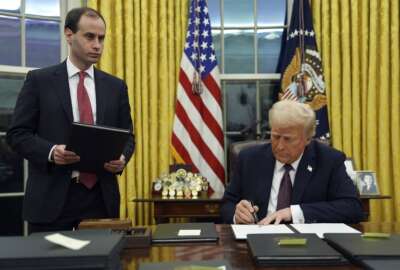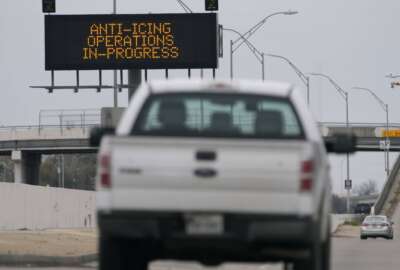Lawmakers at odds over ‘official time’
House Oversight and Government Reform members disagreed on the whether federal employees should perform union activities during the work day. A bill banning...
wfedstaff | June 4, 2015 6:45 am
By Jason Miller
Executive Editor
Federal News Radio
The debate over federal workforce issues played out for the fourth time in three months, and Democrats on the House Oversight and Government Reform Subcommittee on the Federal Workforce, the Postal Service and Labor Policy are growing weary.
Rep. Stephen Lynch (D-Mass.), ranking member of the subcommittee, showed little patience for the hearing Wednesday on whether federal employees should perform union-related work while the government is paying their salary, otherwise known as official time.
Part of the hearing focused on Rep. Phil Gingrey’s (R-Ga.) Federal Employee Accountability Act (H.R. 122), which would do away with official time.
“Some legislation here is actually a solution in search of a problem, I guess what I would call H.R. 122,” Lynch said. “I’ve talked to a lot of the federal manager groups. This issue never comes up. We are in a mess here in Washington, the debt limit, the budget. We got problems. We are in three wars. And here we are having full blown hearing and this now apparently is the issue du jour. It’s another way to get back at the unions or get back at workers who try to exercise their rights.”
Lynch said the hearing and treatment of federal employees is a “disgrace.”
He added the latest hearing, along with the others on federal pay, the size of the federal workforce and workers’ compensation rules, are doing a disservice to federal workers. He said the committee has to “stop trashing” feds and treat them with more dignity.
But Rep. Dennis Ross (R-Fla.), chairman of the subcommittee and co-sponsor of H.R. 122, and Gingrey say official time is costing tax payers $129 million in fiscal 2009 and needs to be one of many areas where the government must reconsider how it spends its money.
“There is no evidence that official time has a positive impact on productivity,” Ross said. “When an employee is on official time, he or she is not available to perform the duties for which they were hired. I ask, can we afford such charity given the fiscal problems facing our country?”
Gingrey was even more blunt in his assessment of official time.
“Official time has been mismanaged and abused since 1978, costing taxpayers millions of dollars annually,” he said. “What began as a noble goal to ensure healthy labor-management relations has been twisted into a one-sided scheme to perform union representational functions in lieu of performing one’s official duties as federal employees.”
Gingrey also introduced a provision to prohibit official time in the 2012 Defense Authorization bill. The amendment did not make it into the final version of the bill.
In 2009, non-postal service civilian agency employees spent almost 3 million hours performing union work on government time. This equates to an average of 2.58 hours per employee a year, said Tim Curry, the Office of Personnel Management’s deputy associate director for partnership and labor relations.
Curry said it cost the government more than $129 million in salary and benefits last year.
OPM issued its 2009 report on official time May 17, more than a year late.
Ross said he will introduce a bill requiring OPM to issue the report by March 31.
Curry said OPM’s 2010 report on official time should be done by September.
John Gage, president of the American Federation of Government Employees (AFGE), said should Gingrey’s bill or a similar one become law, it would all but end collective bargaining rights for employees.
“It would stop most enforcement and make collective bargaining meaningless,” he said. “Plus, with a union steward on the job that makes the local union go. It really turns the wheels to have someone there management can go to right way. They can’t call me and ask for us to send out a business agent because they have to talk to someone. Having the union rep right there with a relationship with their manager is what good labor relations is all about.”
Gage said official time is not abused. He said it’s part of the negotiations between the union and management.
“These agencies just different fall off the turnip truck,” he said. “They take strict accounting. All official time is approved and it’s on an issue by issue basis.”
He said agencies often deny official time for employees.
“It has to be a reasonable blend when the work permits, you can use official time,” Gage said.
But Vincent Vernuccio, labor policy counsel for the Competitive Enterprise Institute, told lawmakers that employees spent too much time on general labor management issues that provide no benefit to the public.
OPM found during 77 percent of the official time, employees discussed with management general conditions of employment, attended labor management meetings, took part in training for union representatives and participated in formal meetings, including investigative interviews.
“The second largest category of official time use is dispute resolution,” He said. “This involves union representatives being paid by the federal government to represent employees who are facing disciplinary action or to file grievances against the agency or department.”
Vernuccio said official time is the government subsidizing union activity and should be stopped.
(Copyright 2011 by FederalNewsRadio.com. All Rights Reserved.)
Copyright © 2025 Federal News Network. All rights reserved. This website is not intended for users located within the European Economic Area.





